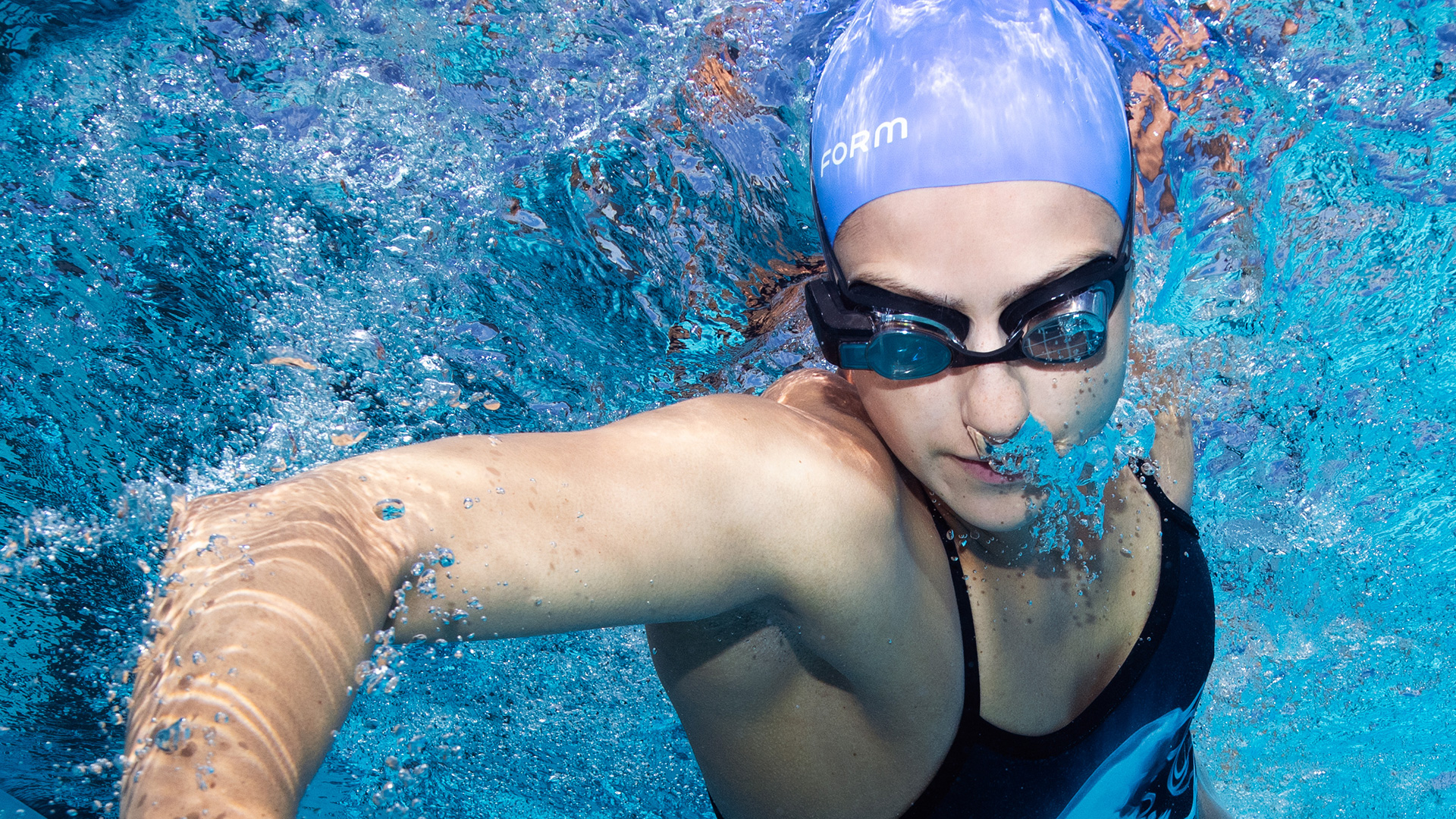Most people focus on sunscreen or proper swimming strokes when it comes to swimming. However, one crucial aspect that often goes unnoticed is eye protection. Whether you’re swimming for leisure or engaging in competitive swimming, the health and safety of your eyes should not be overlooked. This brings us to an important question: Do goggles protect the eyes in the swimming pool? This blog post will share the significance of wearing goggles and how they safeguard your eyes while swimming.
Do Goggles Protect Eyes in Swimming Pool?
Yes, goggles do protect the eyes in the swimming pool. When you plunge into the pool, your eyes are exposed to potential risks such as chemicals, debris, and harmful UV rays. Goggles act as a shield, creating a barrier between your eyes and the pool water, providing much-needed protection. Moreover, goggles often come with additional features that enhance eye protection, such as anti-fog coatings to ensure clear vision even in humid conditions.
What are Some Potential Risks to the Eyes in a Swimming Pool?
The potential dangers to the eyes when swimming are numerous. From other pool users to floating debris, wearing a goggle saves you from them all. Here are the most prominent dangers to be aware of:
1. Chemical Exposure
Exposure to chlorine and other pool chemicals can irritate and damage the eyes. Chlorine, used to kill pool bacteria, can cause redness, itching, and dryness. The disinfection byproducts formed by the reaction of chlorine with organic matter can also be irritating. Prolonged exposure to these chemicals can lead to more severe conditions, such as chemical conjunctivitis or corneal damage.
2. Debris and Foreign Bodies
Swimming pools can contain debris, including leaves, dirt, and insects. These foreign bodies can enter the eyes while swimming and cause discomfort, pain, or even corneal abrasions. In outdoor pools, wind can carry particles like dust or sand, increasing the risk of eye irritation and injury.
3. Bacterial and Viral Infections

Swimming pools, especially public ones, can be a breeding ground for bacteria and viruses. Contaminated water can lead to infections such as conjunctivitis (commonly known as pink eye), which causes redness, itching, and discharge from the eyes. Viruses like adenovirus can also be transmitted through pool water and result in severe eye infections.
4. UV Radiation
Ultraviolet (UV) radiation from the sun can still reach your eyes while swimming outdoors. Prolonged exposure to UV rays can damage the eyes’ delicate tissues, leading to conditions like photokeratitis (sunburn of the cornea) or cataracts in the long term. The reflection of sunlight off the water’s surface can intensify UV exposure, making proper eye protection crucial.
5. Lack of Tears
Swimming in a pool can cause your eyes to lose moisture due to the absence of tears. This can result in dry eyes, leading to discomfort, blurred vision, and increased susceptibility to other eye problems. The combination of water, chemicals, and decreased tear production can exacerbate dry eye symptoms in individuals who already have this condition.
Is it compulsory for me to wear goggles when swimming?
Wearing goggles while swimming is not compulsory, but it is highly recommended for several reasons. Goggles provide essential eye protection by creating a barrier between your eyes and the pool water, shielding them from potential risks and hazards. They help prevent irritations, infections, and injuries due to chemicals, debris, or UV radiation in the water. Additionally, goggles enhance visibility and clarity underwater, allowing you to swim more confidently and enjoyably. While it ultimately depends on personal preference, wearing goggles is strongly encouraged to prioritize the health and safety of your eyes while swimming.
Why do my eyes still itch after swimming despite wearing goggles?
1. Allergies
Goggles may provide some protection against irritants, but they cannot completely prevent allergens from reaching your eyes. Pool environments can contain allergens such as pollen, mold spores, or chemicals like chlorine, which can trigger allergic reactions and cause eye itching. Allergic conjunctivitis is a common condition that can result from exposure to these allergens, even with goggles.
2. Improper Fit or Seal
If your goggles do not fit properly or have an inadequate seal, water and irritants can enter the goggles, leading to eye irritation and itching. A poor fit can result from incorrect sizing, worn-out straps, or improper adjustment. It is crucial to ensure that your goggles fit snugly and create a tight seal around your eyes to prevent water and irritants from getting in.
3. Goggle Material or Design
Some individuals may have sensitivities or allergies to the materials used in goggles, such as rubber or silicone components. These materials can cause contact dermatitis or allergic reactions, resulting in eye itching and discomfort. Opting for goggles made from hypoallergenic materials or exploring different designs and brands may help alleviate these issues.
4. Pre-existing Eye Condition
If you have a pre-existing eye condition like dry eyes or ocular allergies, wearing goggles alone may not be sufficient to prevent itching. The pool environment can further aggravate these conditions, including the chlorine and other chemicals in the water. Goggles can help to some extent, but additional measures such as lubricating eye drops or seeking medical advice may be necessary to manage the underlying condition effectively.
Tips for Protecting Your Eyes When Swimming
These additional tips can further protect your eyes while swimming and reduce the chances of eye irritation or discomfort:
- Take regular breaks: Give your eyes periodic breaks from the pool water to prevent excessive chemical exposure and reduce eye irritation.
- Rinse your eyes after swimming: Use clean, fresh water to rinse your eyes after swimming to flush out any potential irritants or chemicals that may have entered.
- Avoid rubbing your eyes: Rubbing them while exposed to pool water can further aggravate irritation. Instead, gently pat them dry with a clean towel or use eye drops to alleviate discomfort.
- Use lubricating eye drops: If you experience dryness or discomfort, lubricating eye drops can help moisturize your eyes and alleviate symptoms caused by prolonged exposure to water and chemicals.
- Shower before swimming: Taking a quick shower before entering the pool can help remove sweat, oils, and cosmetics from your body, reducing the amount of potential contaminants in the pool water.
- Avoid swimming with contact lenses: Swimming with contact lenses increases the risk of eye infections and discomfort. Removing them before entering the water is best, and opt for prescription goggles if needed.
- Maintain proper pool hygiene: Choose swimming pools that follow proper maintenance and hygiene protocols, ensuring adequate water treatment and cleanliness to minimize the risk of eye-related issues.
Final Thoughts
Wearing goggles is highly recommended to prevent eye irritation, infections, and injuries. They create a barrier between your eyes and the pool water, shielding them from potential harm. By prioritizing eye safety and making informed choices when selecting goggles, you can enjoy swimming with improved visibility, clarity, and comfort while minimizing the risks associated with the pool environment.
